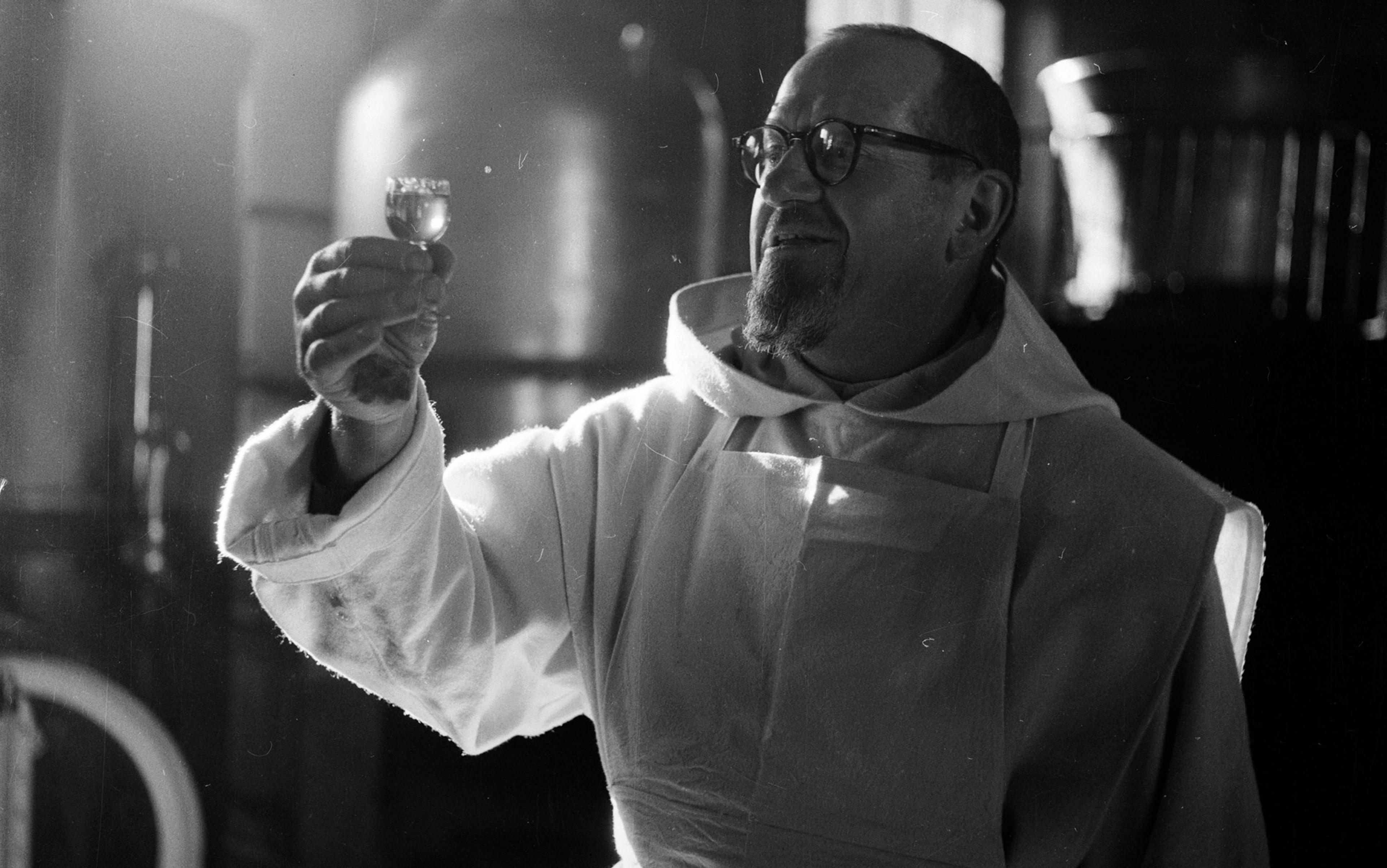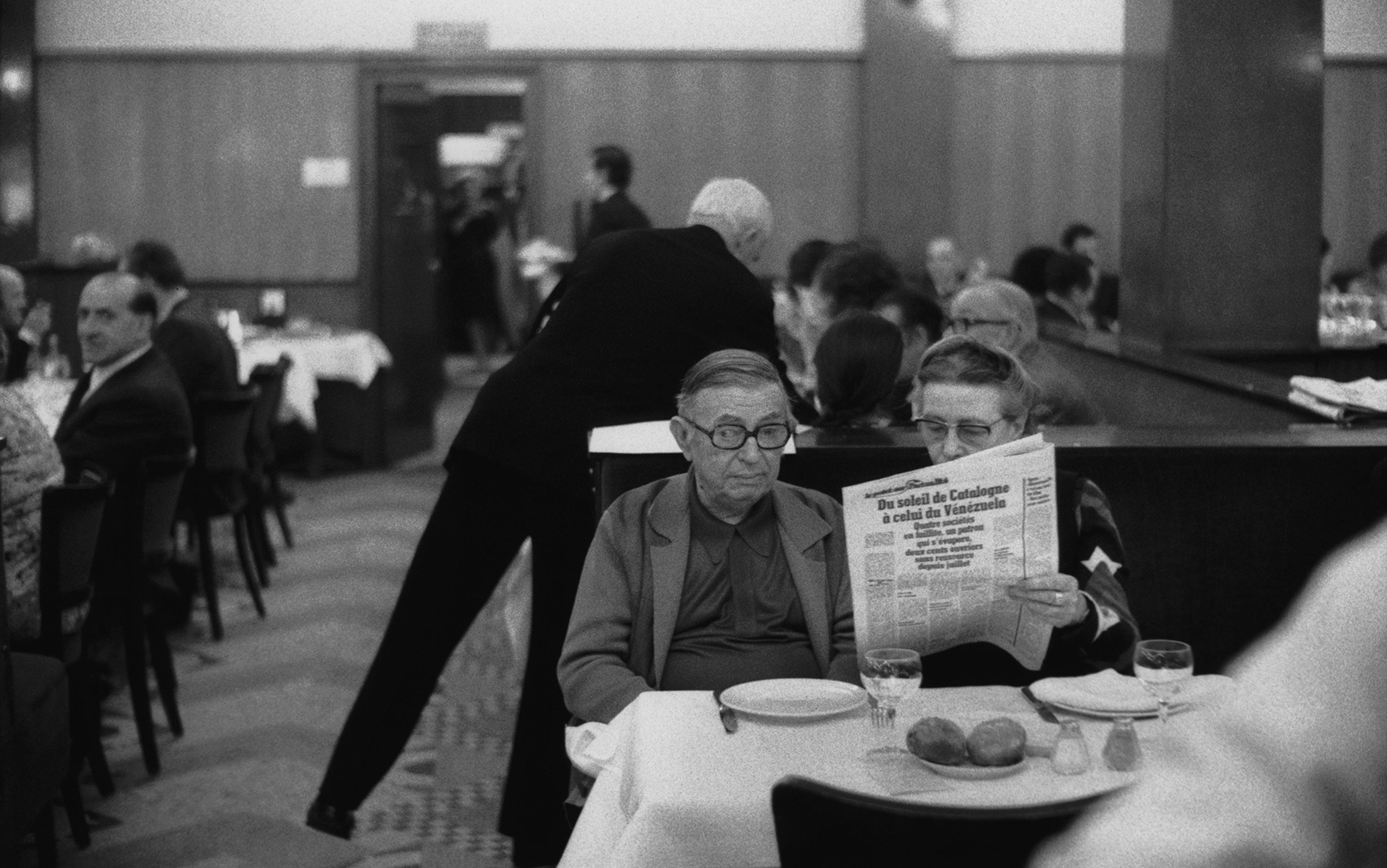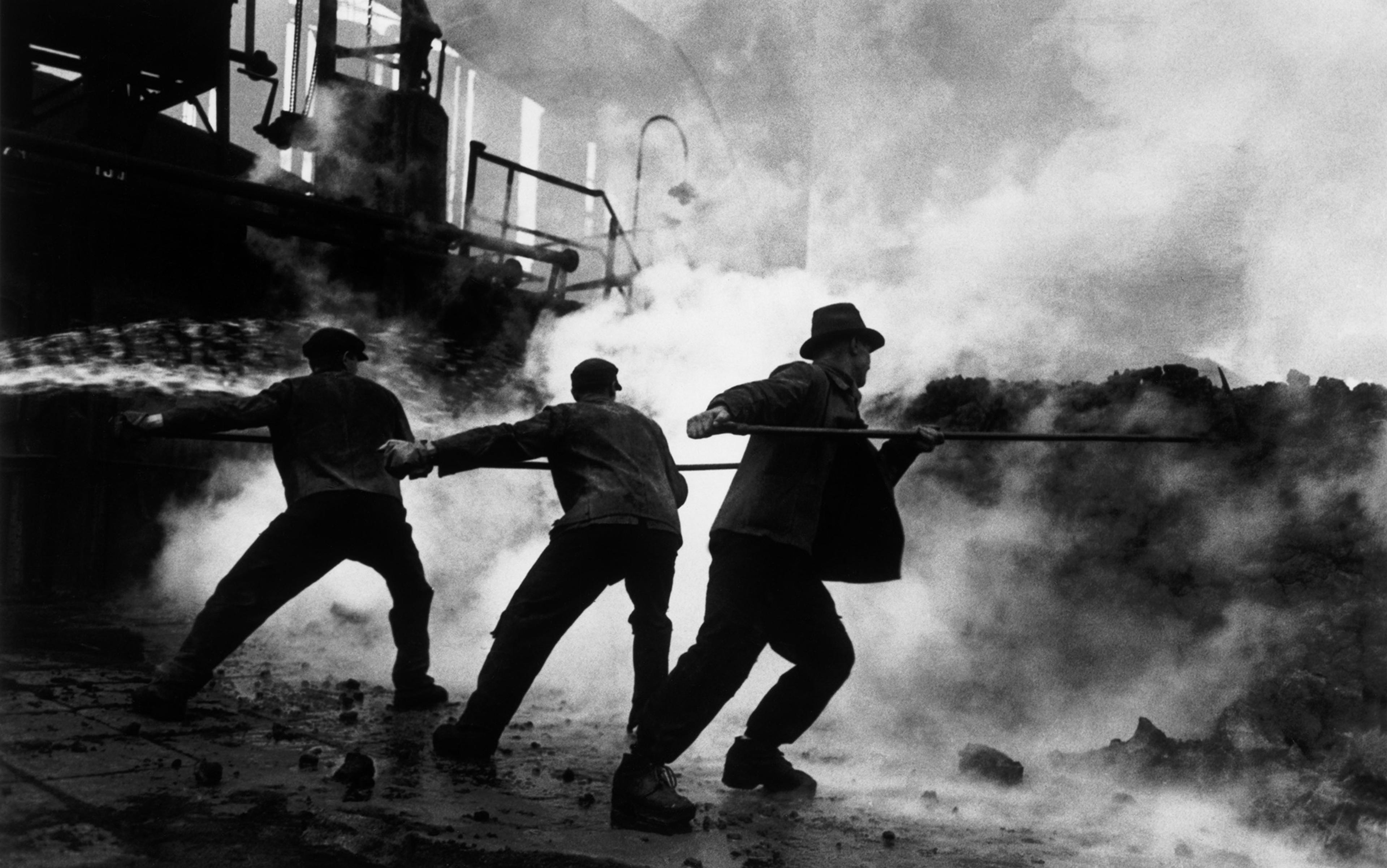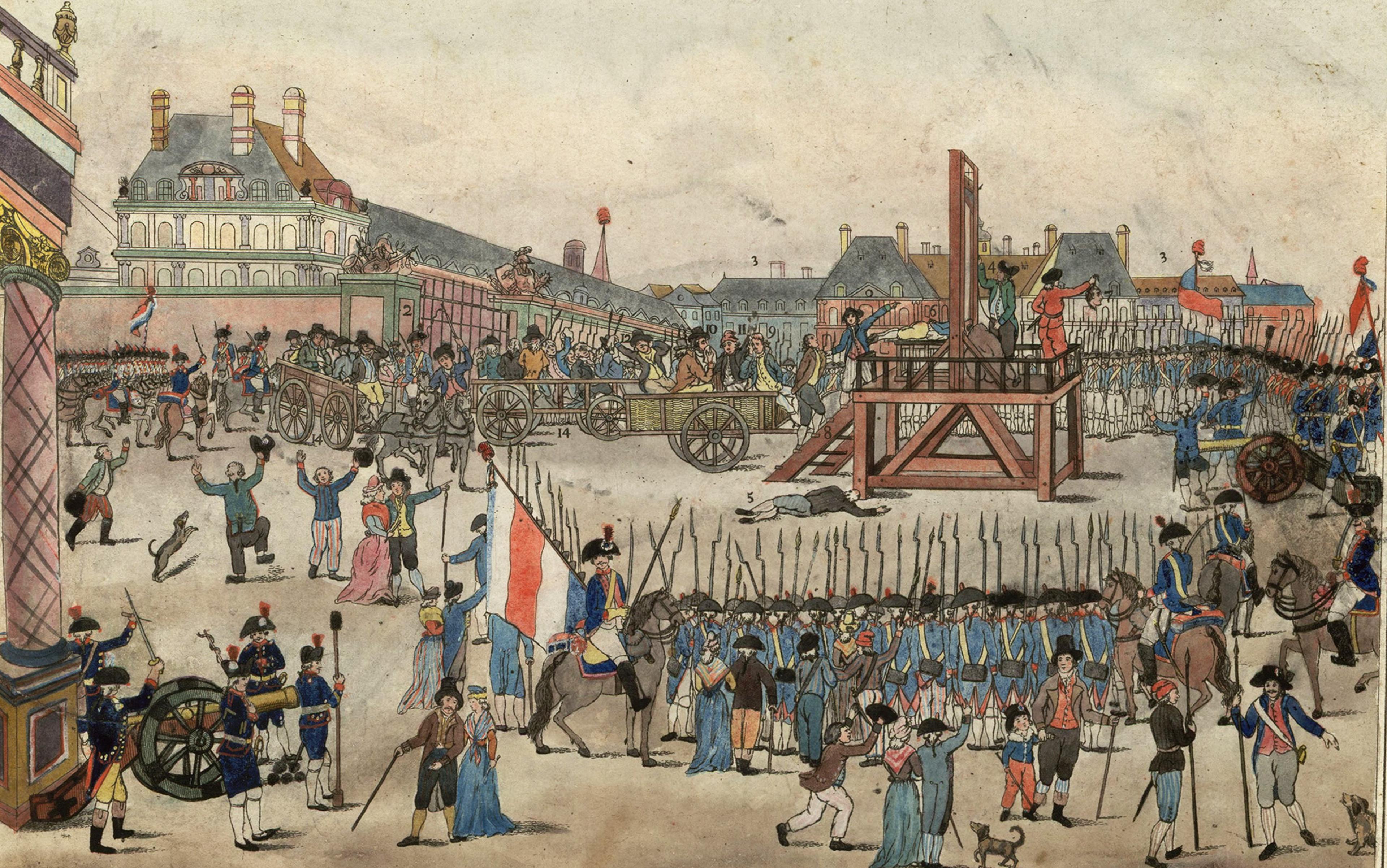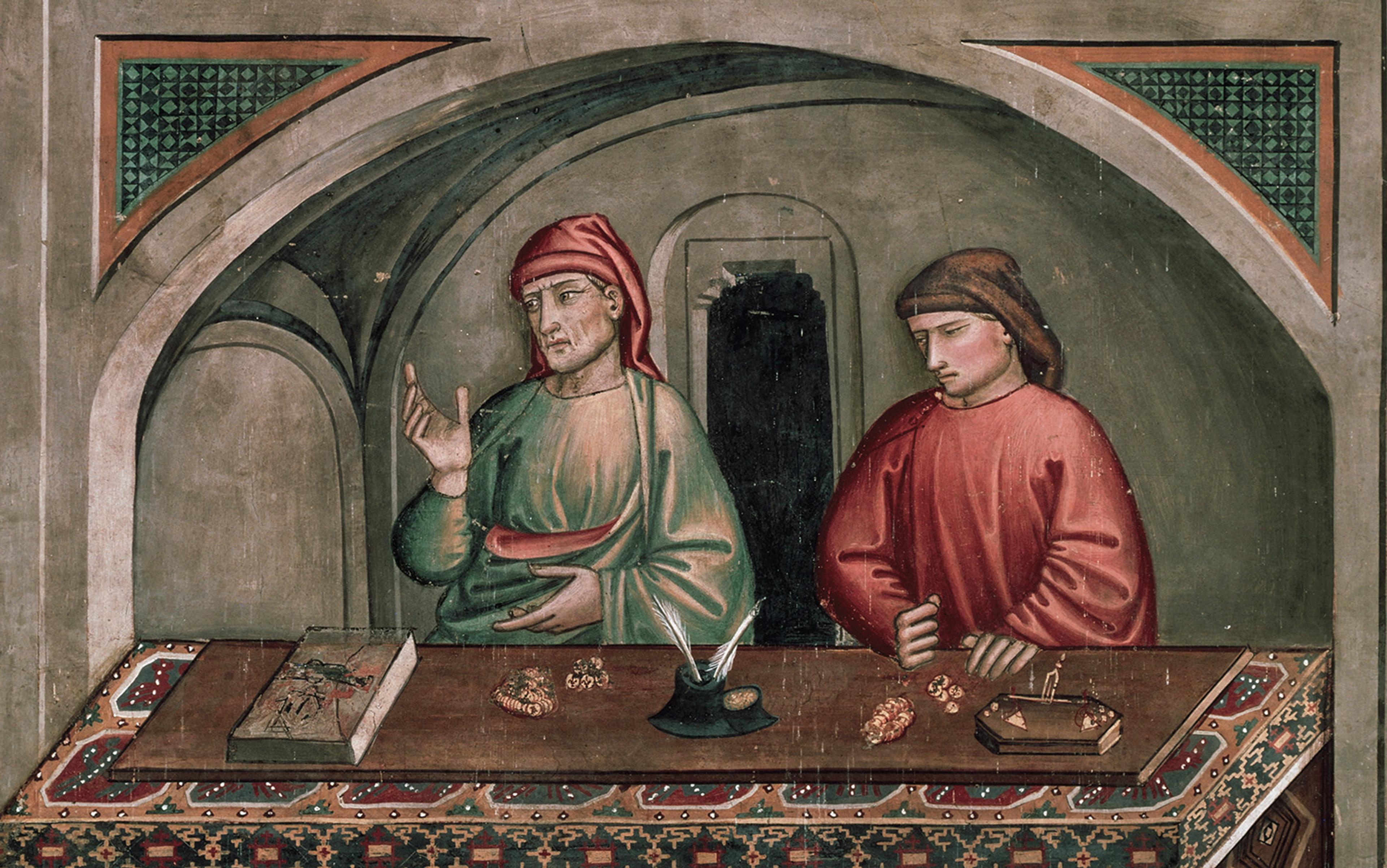Apparently, the Carthusian monks who distil the herbal liqueur Chartreuse have been struggling to maintain a work-life balance. Sales of the drink, which totalled $30 million in 2022, continue to bankroll the order. The brothers’ vows of solitude and silence have not prevented the company that hawks their wares, Chartreuse Diffusion, from building a global luxury brand. Nonetheless, in January 2023 the wholesaler announced their decision to limit supply despite robust demand. What would prompt a firm to commit the cardinal sin of leaving money on the proverbial table? The monks’ stated motives were two-fold. Although they expressed a concern with the environmental impact of their operation, the deeper impetus was spiritual. As the order reminded frustrated tipplers, they first and foremost are in the business of contemplating eternal mysteries.
Well beyond Chartreuse, or even Dom Pérignon, France has long been associated with a specific version of the good life, from haute cuisine to haute couture. In the global imagination, the French excel not only at putting quality before quantity, but also in distributing the finer things more widely than their Anglophone counterparts. The French are as famous for their national healthcare system, month-long vacations and 35-hour working week as they are for bread, wine and cheese. That bosses are disallowed by law from requiring their employees to read or respond to work emails after business hours only reinforces the perception that life is meant to be savoured.
How, then, should one approach decisions that appear to exceed the limits of economic rationality? The real task is not to point out some transhistorical tick of the psyche, or neuroscientific hack, and call it a union-negotiated day. Not only are the politics of such a decision abysmal, but the move also makes for false history. Carthusians might regard themselves as mere pilgrims in the terrestrial sphere, but the corner of the world they presently inhabit sits in southeastern France – a nation that has been roiled in recent months by opposition to the government’s plan to reform the pension system by raising the retirement age from 62 to 64. The two developments are related, and for reasons that are distinctly Catholic as well as French. Indeed, the monks’ willingness to retire from the world of commerce offers a microcosmic glimpse into the motives animating the national fight to retire at an age that allows for enjoying the fruits of one’s labour.
The shared struggles of the Carthusians and the French electorate reveal the ongoing significance not of the axioms set down by Adam Smith, but of what one might call economic theology. In the most literal sense, this term of art connotes an attentiveness to the economic elements of theology as well as the theological vestiges in economic science. Think of Max Weber’s Protestant ethic, but with a different cast of characters and constellation of values. In a more concrete sense, economic theology refers to a corpus of works produced by 18th-century theologians writing with a conception of the economy that was far more expansive than typical usage allows. In contrast to classical political economy, which enshrines its object as an autonomous, purely natural domain of thought and action, French economic theologians described a range of activities aimed at producing and circulating wealth broadly conceived, from the riches contained in consecrated hosts and the power invested in images of the king to the value projected onto and believed to radiate from commodities. As I argue in The Spirit of French Capitalism (2021), this way of figuring the economy can be seen as underwriting ‘a distinctly Catholic ethic’ that, in contrast to Weber’s schema, ‘privileged the marvellous over the mundane, consumption over production, and the pleasures of enjoyment over the rigours of delayed gratification’.
To cite a particularly conspicuous example, Catholic sacramental theology exerted a surprising influence on the reception of John Law’s efforts in the 1710s to introduce a paper national currency in France that would be untethered from gold and silver. Proponents and critics alike depicted banknotes and company shares as promising unfathomable riches. Well before Johann Wolfgang von Goethe’s Faust, a Eucharistic-alchemical complex lent itself to describing these instruments and their myriad effects. Priests-cum-alchemists explicitly likened the philosopher’s stone to the consecrated host. Cartesian clerics such as Jean Terrasson justified the infinite extension of matter with direct references to the sacrament. In defending Law’s reforms, he went so far as to transpose his metaphysical doctrines into an economic theology of money. Like the Eucharist, which Terrasson in 1720 regarded as an ‘efficacious sign’, bills served as active ‘signs of the transmission of real wealth’. Thus, if ‘the banknote never produces specie, which it is not, no bearer of this note can ever suffer a loss, since he has the same claim to the corresponding goods as the first who had received it.’ Paper’s efficacy followed from its dual nature as both visible and transparent – that is, as a means of exchange that not only passively reflected but also brought into being the very existence of wealth.
The assignat inspired hopes of financial salvation as well as fears of ruinous speculation
The Catholic ethic of circulation and consumption not only emboldened investors in Law’s System. More quietly, perhaps, but even more resolutely, it underwrote the soul’s transactions with God as imagined by theologians, who wrote extensively on the production and distribution of spiritual as well as material wealth. It was put into practice by the millions of French subjects, clerics and laypersons alike, who participated in the sacramental life of the Church in the hope of absolving sin and securing the most sublime of riches – the splendours of eternal life. It enticed consumers to seek pleasure through the acquisition of goods, including devotional objects, and authorised the ex-seminarian turned political economist Anne Robert Jacques Turgot to endow land, and the material realm more generally, with untold productive capacity. It also compelled theologians to denounce what they feared was becoming an idolatrous attachment to things. Louis Genty, a doctor of theology and vice-secretary of the Royal Society of Agriculture in Orléans, plumbed the depths of a dynamic acknowledged by Turgot and enshrined the following century by Karl Marx and Friedrich Engels in The German Ideology. ‘Capitalists,’ Genty alleged in 1783, ‘devise a million artifices’ to provoke the ‘depraved imagination’ of consumers, which ‘invents without ceasing new means to enjoy every caprice that transforms itself into needs’.
The history of economic theology does not end with the collapse of the Old Regime. For instance, the problem of fixing the relationship between political and economic sovereignty propelled the French Revolution from the outset. On 2 November 1789, the new government voted to nationalise ecclesiastical property, which had long been regarded as possessing a sacred character, given its role in supporting worship and assisting the poor. The deputies then proceeded to issue their own paper currency backed by this wealth. Like the notes of Law’s bank 70 years before, to which it was anxiously compared, the assignat inspired hopes of financial salvation as well as fears of ruinous speculation.
Despite such risks, the fate of the new regime born of debt depended on the power of financial instruments not merely to represent wealth but to generate it ad infinitum. In the pivotal debates during the summer and autumn of 1790, the Count of Mirabeau promoted the assignat as a national fiat currency by likening it to a ‘philosopher’s stone of finances’. The notes held the power of ‘resuscitating, as if by magic, labour, industry, commerce, and abundance’ throughout the nation. Mirabeau used the language of alchemy not so much for dramatic effect as to illuminate a fundamental point of his monetary theory, that ‘it is currency that creates currency. It is this spur to industry that leads to abundance; it is the movement that animates everything, which restores everything.’
Mirabeau’s colleague Louis-Marthe de Gouy, a member of the finance committee, further developed an economic theology of money reminiscent of Terrasson. Gouy unabashedly claimed that the assignat would affect ‘a prompt transmutation of the state’s debt into a circulating paper note.’ He did not stop there. Paper notes could even constitute the ‘Real Presence’ of all the wealth in France – but especially the lands of the Catholic Church that had been placed ‘at the disposal of the nation’. The choice of words was by no means accidental: throughout the 18th century, the expression always referred to the doctrine of transubstantiation.
The case of the assignat suggests that economic theology underwent a series of unlikely mutations. A massive transfer of material and symbolic capital ensued. As the revolution entered its radical phase upon the overthrow of the monarchy in 1792, the popular movement in Paris called on the new republic to commit itself with no less vigour against the ravages of scarcity. The sans-culottes, urban artisans associated with the popular movement in the capital, shared with their 18th-century predecessors a vision of the economy that was general rather than restricted, concerned not with the preservation of scarce resources but the dissipation of superabundance.
Jacques Roux – the public voice of the so-called Enragés, a sect of radical egalitarians – effectively revolutionised the Catholic ethic of infinite abundance by modelling the human economy on the divine. Indeed, his rhetoric evinced a patriotic rendering of economic theology. He affirmed that religion is ‘nothing other than an exchange between God and men’ requiring a ‘baptism of blood that sanctifies’ and ‘an ardent charity in which all good works are realised’. He went so far as to spur his fellow citizens to virtue in the name not only of liberty and of the constitution, but also of the Eucharist – or, in his words , ‘the pure and stainless host that will be sacrificed at the foot of those altars still red and smouldering with the blood of Jesus Christ’.
Macron’s programme signals a fundamental reorientation in how the French government figures value
Bowing to pressure from Roux and his acolytes, members of the National Convention set aside their laissez-faire scruples to pass laws that placed limits on both wages and, more crucially, the price at which commodities could be sold. The first Maximum was imposed in May 1793, soon followed by the General Maximum in September. These measures reflected sans-culottes’ demands not only for bread but also for a host of comestibles not traditionally considered essential. The table of goods prepared for the capital listed ‘various meats’ including ‘beef, veal, mutton, fresh pork, fresh bacon, lard, salted pork, salted bacon, smoked pork, and jambon de Bayonne’. Parisians were no less stinting with drink, calling for both coffee and chocolate from the Caribbean as well as ciders, wines, and eaux-de-vie produced throughout the metropole. Likewise, it was expected that such meals would be concluded with tobacco from Maryland and Virginia.
Plus ça change, plus c’est la même chose. This has been the pessimistic motto of political progressives since it was coined by the journalist Jean-Baptiste Alphonse Karr to express his disillusionment with the short-lived French Second Republic – established in 1848 and usurped by Louis-Napoléon Bonaparte, its elected president and the eventual emperor. If critics are to be believed, the parallels with the present are more apt than one might suspect. Indeed, the Left-wing firebrand Jean-Luc Mélenchon has demanded the establishment of a sixth republic. This new-and-improved regime would finally exorcise the ghost of monarchism thought to possess the current president, Emmanuel Macron. As Macron declared even before his first election: ‘There is an absence in the democratic process … In French politics, this absence is the figure of the king, whom I fundamentally believe the French people did not want to see die.’
Macron’s programme signals a fundamental reorientation not only of French values, but also in how the French government figures value more generally – economic as well as political, cultural, and even spiritual. The head of state, known for a Gaullist if not Napoleonic vision of his office, now finds himself in an embattled position that recalls that of his illustrious predecessors. Facing public outcry and deadlock in the National Assembly, this March Macron authorised the prime minister, Élisabeth Borne, to invoke article 49.3 of the constitution, a mechanism that allowed the government to pass pension reform without approval from the deputies. By law the move triggers a no-confidence vote, which Borne survived by a mere nine ballots cast. All other legal challenges have likewise faltered.
Such manoeuvres have done little to silence the millions resisting reforms widely viewed as antisocial and undemocratic. As many as three-fifths of the population opposes the law, and they continue to show up in force. Labour unions have committed to supporting strikes and shutdowns throughout the country. Garbage collectors allowed mountains of trash to pile up in the narrow, winding streets of the capital, which protestors were only too willing to ignite like so many burning barricades. Macron and his ministers now face hecklers banging pots and pans during official visits – a form of protest that dates back to the medieval period. Scores of railroad workers temporarily occupied the offices of LVMH, a conglomerate of luxury brands headed by one of the world’s richest men, Bernard Arnault. The firm currently owns, partly or outright, Dom Pérignon, Moët & Chandon, Louis Vuitton and Christian Dior, as well as Stella McCartney’s design house.
Lest one think that the new retirement age is a nod to the Beatles’ song on the Sgt Pepper’s album, the French people have declared that they will no longer love Macron when they’re 64. The world has followed their discontent with a mix of beguilement, apprehension and Schadenfreude. Economists in France, the US, and the UK charge that, despite the falling ratio of active workers to retirees (currently 1.7:1), the administration might keep the current system afloat if it would only countenance a tax hike. The reform as currently devised appears to fall short of closing existing deficits by 2030, especially now that Macron has announced plans for further tax cuts. France’s European partners have expressed reservations that Macron’s heavy hand will not only undermine popular confidence in domestic institutions but also galvanise scepticism toward the European Union on both extremes of the political spectrum. Such fears are warranted. Macron’s embrace of arguably undemocratic power seems to have played into the hands of Marine Le Pen, the far-Right leader known for courting actual authoritarianism. She can only profit from the erosion of faith in the constitutional order. Curiously, the pension reform has found support from none other than Pope Francis, who made a vague pronouncement on how future generations should not be burdened with public debt to sustain a broken system.
The pontiff’s remarks have failed to inspire his brothers in Christ to pump out more Chartreuse. The formula for the drink, based on a 17th-century alchemical manuscript, was first codified in 1764 as a ‘vegetable elixir’. The processes of purification and distillation used to describe Law’s banknotes still infuse this peculiarly French spirit of capitalism, as does the grace of the Catholic ethic. The monks have issued an ultimatum to their customers, and perhaps to themselves, that the pursuit of commercial profit cannot detract from the desire for heavenly splendours. One might even say that the latter serves as the regulative ideal for the former. The botanicals that go into Chartreuse are elevated into a higher form, but the monks do not see it as their duty to flood the market with a liquid that, in contrast to the blood of Jesus, is forever subject to ecological if not manmade scarcity. It remains to be seen whether the monks’ decision will inadvertently drive up the price of their most rarefied commodity.
The president’s compatriots won’t have to endure ‘work that does not allow for living well’
Thomas Piketty argued in Capital et idéologie (2019) that the political culture of the French Revolution bequeathed an unresolved conflict to the French regimes that followed in its wake. In particular, the abolition of clerical and aristocratic privileges in 1789 promised emancipation through the ‘sacralisation’ of property rights, which gave new impetus to the inequalities that characterise social relations under capitalism. Despite Piketty’s recourse to religious terminology and his stated emphasis on ideological determinants, he passes in silence over the actual arguments made in defence of the divinely sanctioned character of Church lands or of the wealth they were believed capable of generating. His contemporaries – whether on the Left or on the Right, in the academy or in the press – have been no more forthcoming in their analyses.
A distinctly French and Catholic ethic of enjoyment, or jouissance, was inscribed into the script of the revolution once the state decided to absorb Church property long believed to have been given by God for the care of souls. Indeed, the origins of this ethic extend deep into the 18th century, and its effects show no signs of abating even now. If work defines one’s early adulthood and middle age, such exertions will be redeemed during a long retirement during which citizens can enjoy the fruits of their labour in reasonably good health and material tranquility – not only their own, but also the aggregate wealth generated by those still working – without the compulsion to produce forever more.
Even in France, where secularism forms part of the national heritage, economic theology remains the coin of the realm. We must examine both sides. Tellingly, Macron does not dispute the central premise of his millions of critics. A televised address this April reminded his recalcitrant flock that austerity is a matter of survival in the global economic order. ‘Gradually working more,’ he said, ‘also means producing more wealth, and we need it.’ Unleashing the productive forces of the French nation will require a ‘new pact’ between workers and the state, one that the president assures will keep his compatriots from having to endure ‘work that does not allow for living well’. Rising scepticism abroad and severe political backlash at home have not cooled another of Macron’s plans, that of establishing Paris as the world capital of the cryptocurrency market. The money will roll right in, we are told, and it will further enhance the productive powers of the French workforce.
As the history of economic theology makes clear, what Karl Marx called the fetish character of commodities is not a novel phenomenon, but rather one especially remarkable iteration in a series of attempts to describe the enchanting character of seemingly mundane objects. According to Marx, with the introduction of money as universal equivalent, ‘circulation becomes the great social retort into which everything is thrown, to come out again as a gold-crystal.’ Later he returned to post-Reformation confessional distinctions to code interest-bearing capital, the very quintessence of the modern economy, as Catholic. Here one came face to face with ‘the religious quid pro quo, the pure form of capital … the transubstantiation, the fetishism, is complete’. The founder of scientific socialism, then, could himself be regarded as an economic theologian of sorts who followed in the well-worn steps of early modern predecessors. After all, the laws of political economy continue to demand exuberant faith as much as restrictive calculation.
The Catholic ethic sanctions a vision of social solidarity in profusion. Since the French Revolution, a gospel of enjoyment has informed not only official government policy, but also dissident movements founded by self-professed socialists, who idealised the communalism of the early Christian Church in an attempt to outline an alternative programme of economic modernity. Social democracy thus has origins that are religious and revolutionary in equal measure. As Macron tries to impose reconciliation from above, it remains to be seen how, in France and around the world, the dually Catholic and capitalist ideal of limitless abundance can be squared with the equally pressing demand to glean psychic and spiritual fulfilment in the here and now.
